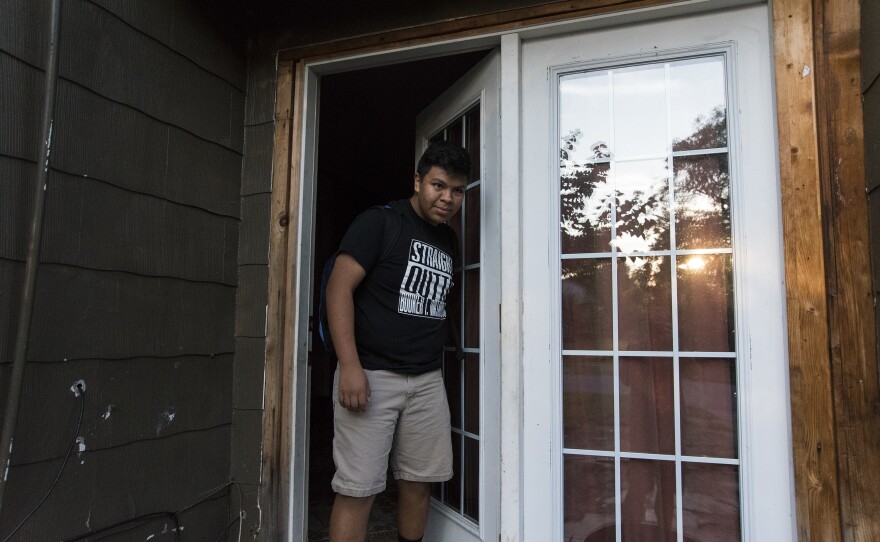
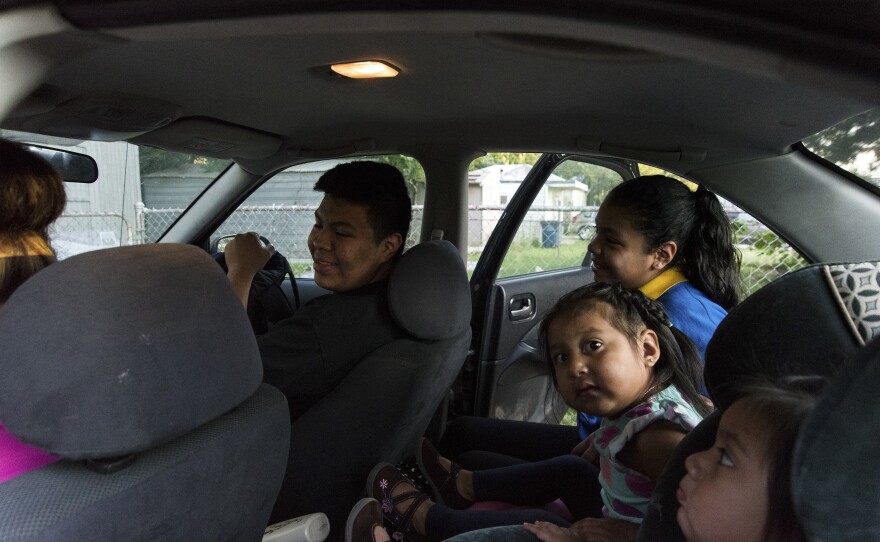
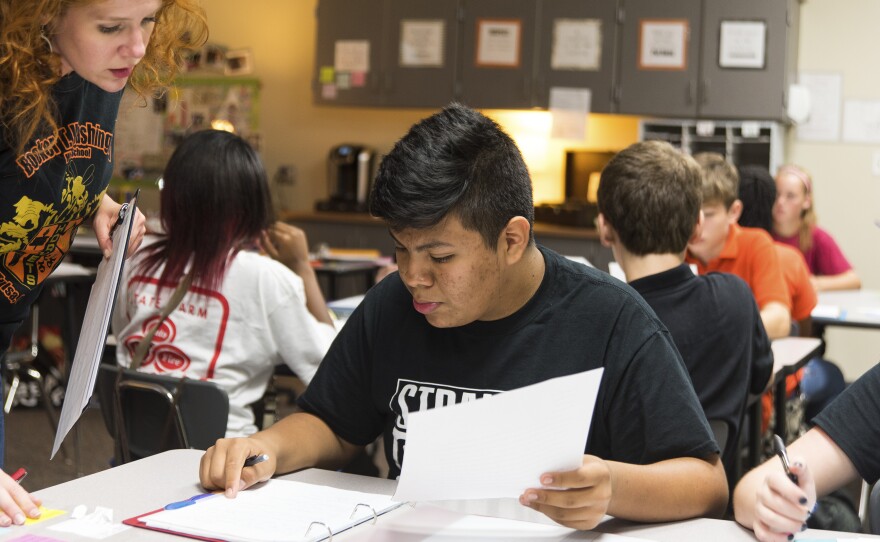
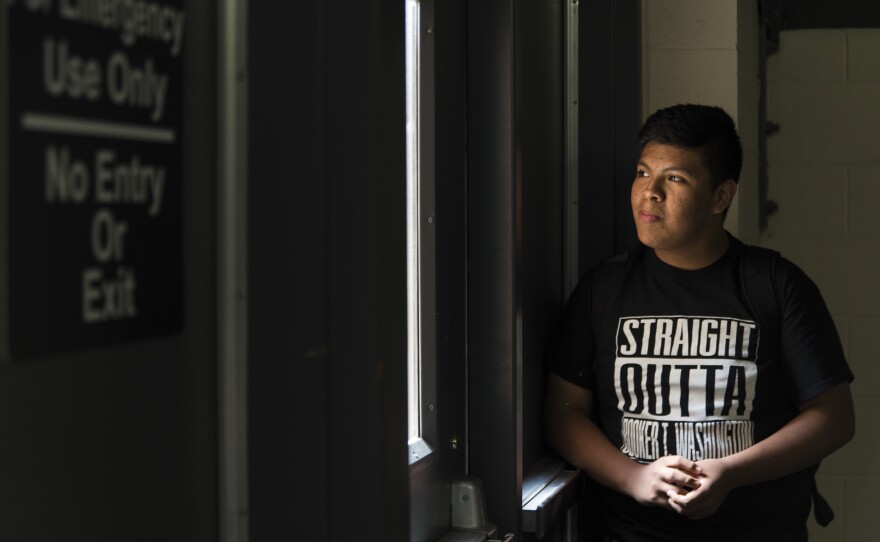
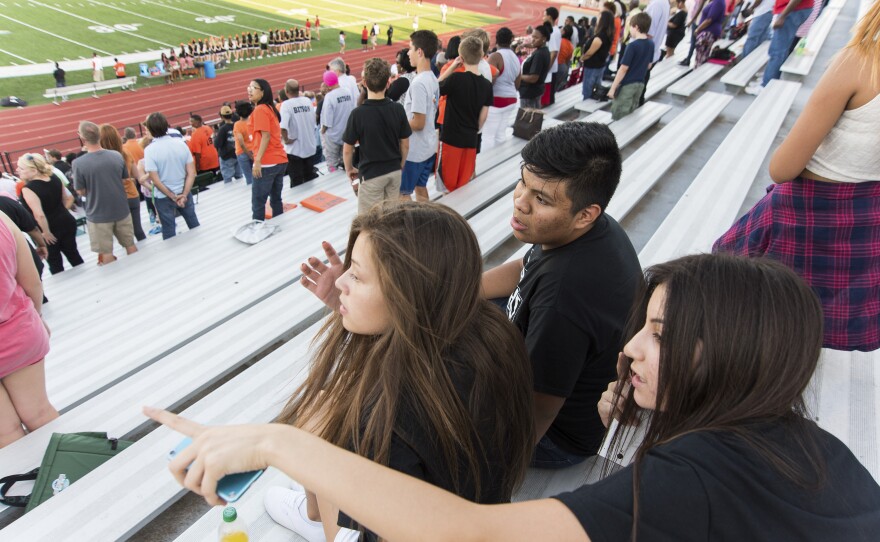
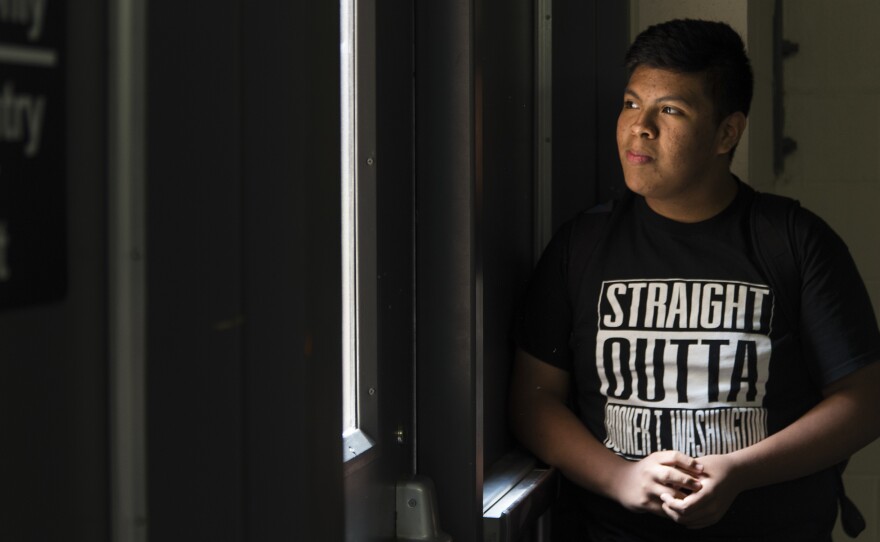
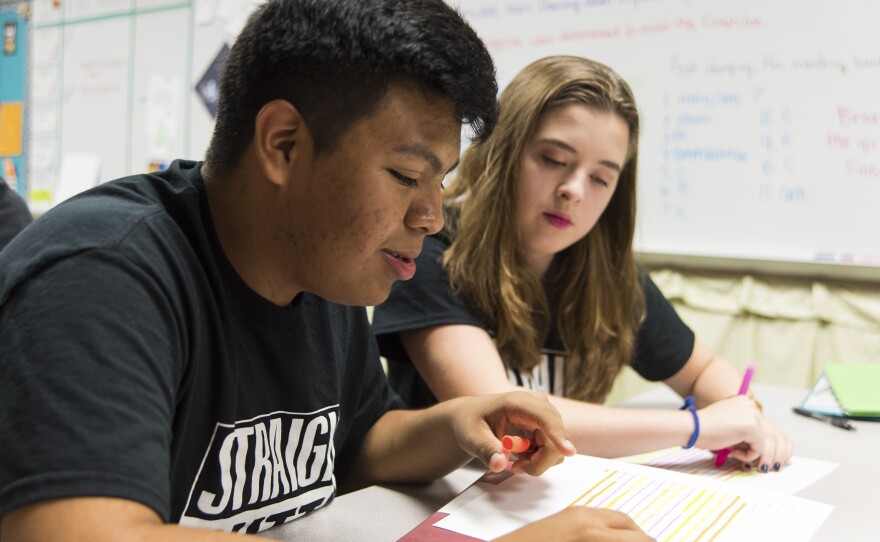
Researchers have been tracking Jose Arriaga since he was 4 years old, waiting for the day he would start ninth grade. This fall, Jose is a freshman at Booker T.Washington High School, a selective public school in north Tulsa. And no one is more proud of him than his mother Veronica Arriaga.
"He's been a straight-A student throughout middle school," Mrs. Arriaga says in Spanish. "That's why he's here."
Jose agrees. He says preschool gave him a big jump-start: "Once I got into kindergarten and first grade, I knew how to count, read ... and everything got easier from there."
Researchers who've been studying preschoolers in Tulsa say the same is true for most of the children who came out of the city's pre-K program in 2005.
"These children did show huge gains in early math and early literacy skills," says Deborah Phillips, a developmental psychologist at Georgetown University has been overseeing the study. "They were more likely to be engaged in school, less timid in the classroom and more attentive."
Phillips says preschool gave them a good strong boost into elementary school, Today, as eighth graders, says Phillips, most of these kids are still doing really well.
Phillips didn't just look at grades and test scores. Her team looked at student mobility, whether kids were in advanced or special education classes. They examined retention rates, absenteeism and they even surveyed students' attitudes about school.
Researchers then compared these eighth graders to a large sample of Tulsa eighth and seventh graders who did not attend preschool. They found that those students were not doing nearly as well.
These findings are important because Tulsa's program is considered a model for high-quality preschool programs nationwide, and the city has received extensive funding from the state to make it so. Phillips says her research now shows precisely how children have benefited over time.
So, did preschool somehow inoculate children from academic failure? And, more importantly, what exactly happens in a high-quality program that creates a lasting impact on children?
"You've put your finger on the big mystery," says Phillips.
What researchers have tried to figure out, she says, is this: What goes into the making of a strong, high-performing, enthusiastic student? Is it something you can measure?
"Or, is it more of the intangibles?" asks Phillips. "Like feeling more willing to speak up and raise their hand in class, understanding the importance of getting to school every day and how to be a good student?"
In many ways, Phillips is describing Jose, who on the first day of school was trying to make his way to his first-period advisory class at Booker T. Washington High.
When he gets there, he checks his class schedule; English I, first period. Algebra, second period. Biology, third period. Seven classes in all.
When principal Nanette Coleman Walks in to greet students, she comes over to Jose and says hello. She knows he's the subject of our story.
Coleman says she doesn't know how many of her ninth graders this year attended Tulsa's preschool program, and has not seen the research. But she has a hard time believing that preschool, no matter how good the program, is going to have an impact on a student 10 years later.
"They're going to struggle when they get to me because there are so many outliers that can have a student not be successful," she says. "Let me be clear," she adds, "I've never made a direct linkage between a pre-K program and their high school success."
For decades, researchers have debated and argued about the long-term benefits of preschool, with little consensus.
So Coleman has every reason to be skeptical, says Russ Whitehurst, senior fellow with the Center for Children and Families at the Brookings Institution, a Washington, D.C., think tank.
Whitehurst says he's looked closely at the Tulsa study and takes issue with the way researchers compared kids who were in the program with those who were not.
"What Dr. Phillips and her colleagues have done is scrounge up a bunch of kids who for whatever reason — and they don't know that reason — did not attend pre-K at all," he says.
"We don't know if they were similar to the kids who went to pre-K," Whitehurst adds. "That's why the design (raises) question marks about the ability to conclude that pre-K had the affects attributed by Dr. Phillips."
Still, says Whitehurst, preschool advocates will surely latch on to Phillips' study just like they've latched on to the famous HighScope Perry Preschool study, which followed 123 low-income children from Ypsilanti, Mich., back in the 1960s. Thirty-five years later, that study showed that pre-schoolers were more likely to have graduated from high school and held a job that paid a living wage.
Recent studies though, as Whitehurst points out, have found no lasting benefits; including a national study of Head Start and a big study of pre-K programs in Tennessee.
Phillips shrugs off the criticism of her work and says her study will "silence the naysers" and make it much harder for people to argue that the benefits of pre-K don't last.
Phillips' study will soon be published by the journal Developmental Psychology.
At Tulsa's Kendall-Whittier Elementary, where Jose Arriaga attended preschool, teachers don't need much convincing. Lisa Williams had Jose in her class.
She says Phillips' study has confirmed what she's known for years. Kids thrive long after they've left the program, and Jose is a good example.
"He was certainly a kid, especially as an English-language-learner, who was able to enjoy being at the high end of reading or math scores," says Williams.
She says she's sure Jose will do great in high school and beyond. Williams digs into a drawer and pulls out a newspaper article dated August, 2006. It has a picture of a little boy. It's Jose, age 5.
Later this month, that little boy will turn 15.
Copyright 2015 NPR. To see more, visit http://www.npr.org/.






